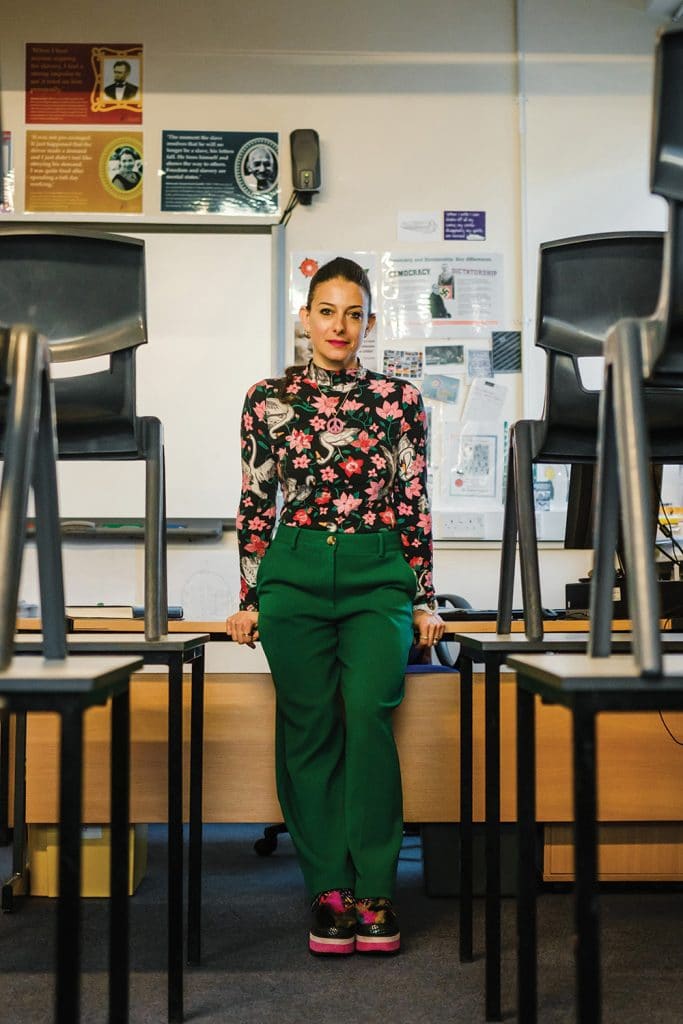Zoë
The Teacher

Zoë Yacoub has been a history teacher for 24 years. Like all educators, Zoë and her colleagues at Our Lady of Sion School Worthing, adapted rapidly to the remote learning challenges, exam cancellations and short periods of in-person teaching over the course of the Covid-19 pandemic.
On 20th March 2020, schools across England closed for nearly all pupils with only two days notice. Teachers scrambled to understand online learning technology to continue classes. “We used Google Classroom for our online lessons. It took some time for us all (teachers and students) to get familiar with it. Luckily, my daughter’s school used it too, so I could pick her brains and understand from the student’s perspective, which was really useful.”
Zoë modified spaces at home, creating areas where she could work – where the Wi-Fi was good enough. “ We had a messy office-come-utility room that is now my office – with a freezer in it! With three members of our family, including me all working /learning from home, we realised that using a webcam slowed down our WiFi connection, draining our already weak broadband – I lost connection a few times completely!”
Engaging children was a challenge. As a parent of two, Zoë, appreciated how hard it was for parents, many of whom were also working from home. “Gauging student’s engagement was really hard in the first lockdown because we were all getting used to a very new way of learning and communicating.”
The challenges of teaching during a pandemic extended beyond internet connections. It was a steep learning curve converting classroom learning into the virtual environment. “I tried to be creative in difficult circumstances. Luckily I am part of a great network of History teachers online (primarily Twitter – #eduTwitter) and we shared a lot of great remote teaching hacks. By the second school closure in January 2021, we were all more confident about how to deliver the curriculum, whilst remaining sensitive to our students’ experiences and worries regarding lockdown, Covid and exams.”
Zoë is proud of all the students who persevered through an extremely difficult, testing time. “Our students have managed really well remotely. Families have expressed their appreciation to teachers at the school – it’s reassuring that our efforts have not been in vain.”
National exams were cancelled soon after schools closed; “There was a drawn-out period of not knowing what was going to happen and having no new information to tell the students was a sucker punch for me and many many teachers I know.”
In December 2020, the Government controversially announced that schools would reopen three weeks later. Teaching unions objected to the lack of consultation and rapid Covid testing provision. A media backlash against teachers followed. It was a stressful and upsetting time for many including Zoë. “Every decision made regarding schools was last minute, leaked to the media before teachers or schools were consulted. The decisions made regarding exams in 2020 and this year have been the worst aspect of this. The way in which schools were represented in the media was really very upsetting. I stopped watching the news or reading the papers very much. I feel that media misrepresentation of schools and teachers has probably been the most damaging aspect of the pandemic for my own personal mental health.”
To cope with the demands of online teaching during the lockdown periods, Zoë ran a lot and took the dog on a lot of walks; “ these activities were essential for my own sense of wellbeing and mental health.”
